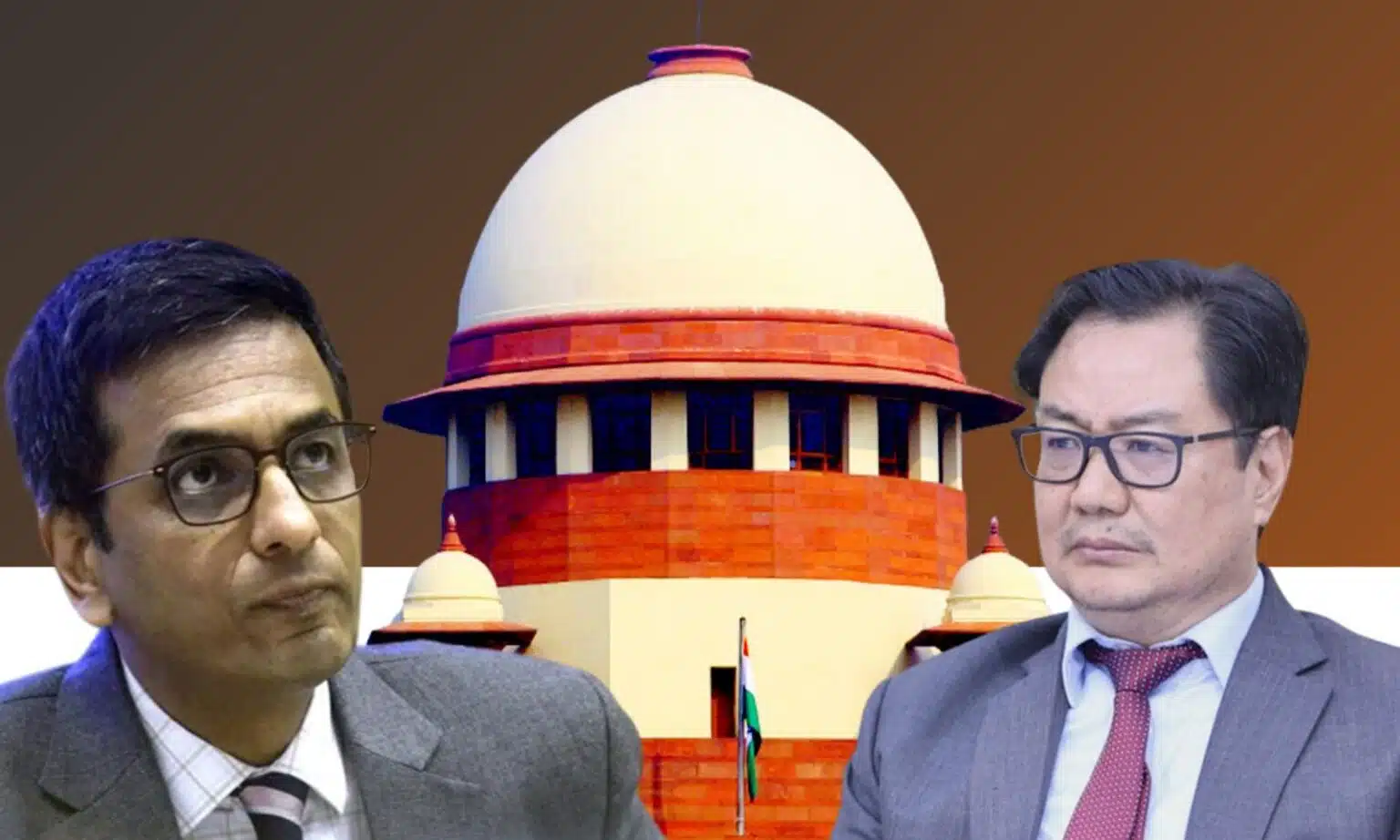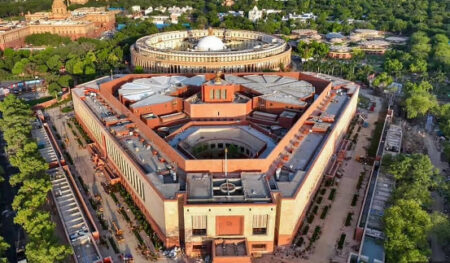Law Minister Kiren Rijiju has responded to a question raised in the Rajya Sabha regarding allegations of some retired judges being part of an “anti-India gang.” He denies the involvement of retired SC judges in the anti-India group by saying “ji nahin”

No allegations against retired judges, confirms law minister
In response to a written question posed by two members of the Rajya Sabha, regarding whether there were allegations, as per the Union Minister for Law and Justice, that some former judges of the Supreme Court were involved in an anti-India group.” In response, Law Minister Kiren Rijiju clarified that the complaints received by his ministry were solely related to the appointment and service conditions of current members of the higher judiciary. He made it clear that there were no allegations against any former judges in this regard. The question was raised by Javed Ali Khan of the Samajwadi Party and Ram Nath Thakur of the Janata Dal-United.
The two Rajya Sabha members also requested the Law Minister to disclose the origin of the information and whether the government had informed the Chief Justice of India (CJI) and the Union Home Ministry in the interest of national security. The question was raised after Rijiju made a statement in a television interview alleging that certain retired judges were associated with an “anti-India gang” targeting the Narendra Modi government. While the Minister’s response in English did not directly address the question, his response in Hindi included a clear NO (ji nahin).

Accountability in the Higher Judiciary Through In-House Mechanism
Kiren Rijiju also clarified that the Department of Justice does not handle complaints related to retired judges of the Supreme Court or high courts. He explained that accountability in the higher judiciary is maintained through an “in-house mechanism,” referencing two resolutions adopted by the Supreme Court during a full court meeting on May 7, 1997. One resolution pertained to the reaffirmation of values of judicial life, while the other established an in-house procedure for taking remedial action against judges who fail to adhere to universally accepted values of judicial life.
In-House Mechanism of the SC
The in-house mechanism adopted by the Supreme Court of India in its full court meeting on May 7, 1997, is a mechanism that deals with complaints of misconduct and misbehaviour against judges of the Supreme Court and High Courts. The mechanism is commonly known as the “Judicial Restraint and Accountability” resolution.

The mechanism consists of the following steps:
- Receipt of complaint: Any complaint against a judge of the Supreme Court or High Court can be received by the Chief Justice of India or the Chief Justice of the concerned High Court.
- Preliminary inquiry: The Chief Justice will conduct a preliminary inquiry into the complaint to determine whether there is any substance to the allegations made.
- Referral to the committee: If the Chief Justice is satisfied that there is prima facie evidence of misconduct, the matter will be referred to the committee for further inquiry.
- Inquiry by the committee: The committee will conduct a detailed inquiry into the allegations made against the judge and submit its report to the Chief Justice.
- Action by the Chief Justice: Based on the report of the committee, the Chief Justice will take appropriate action, which may include recommending to the President of India the removal of the judge from office.
The in-house mechanism is intended to ensure the accountability of judges and maintain the integrity of the judiciary. It provides a framework for dealing with complaints of misconduct against judges and ensures that complaints are dealt with in a fair and transparent manner.













